There should be separate regulations on important minerals.
Discussing the draft Law on Geology and Minerals this afternoon (November 5), National Assembly delegate Truong Trong Nghia (HCMC delegation) said that minerals have important uses.
Currently, the draft Law divides minerals into groups, of which group 1 is important metals and energy such as rare earth, tungsten, uranium, titanium, and combustible ice.
Video : National Assembly Delegate Truong Trong Nghia speaks at the discussion on the draft Law on Geology and Minerals.
“These minerals serve digital transformation, the development of semiconductor industry, electric vehicles, and military aviation,” said Mr. Nghia.
Mr. Nghia stated that the draft law defines important strategic minerals but does not have specific regulations on these minerals. Because each resource has a different important strategy.
Meanwhile, after being licensed, explorers and exploiters have the right to transfer or sue the state in case of disputes.
Mr. Nghia gave an example of the transfer process such as A to B, B to C, C to D. However, subjects B, C, D may be abroad, making it difficult to know who is the real owner of the exploitation and exploration project.

National Assembly Delegate Truong Trong Nghia (HCMC delegation).
Therefore, Mr. Nghia proposed to have a list of important and especially important strategic minerals, and at the same time, decisions on exploration, exploitation and recovery will be made by the Prime Minister.
Mr. Nghia gave an example that in some countries, the Government can intervene to prevent transfers when it affects long-term interests, sovereignty, and national security.
Regarding positional resources, delegate Nghia proposed to restore and clarify that positional resources are due to nature and location, and at the same time stipulate important strategic minerals and minerals with important positional resources in a separate list, assigned to the Government for decision.
Along with that, he suggested that the draft law should be designed according to the principle of saving resources, not leaving a burden on future generations.
Extending the mineral exploitation period many times is very inappropriate.
Regarding mineral exploitation licensing, delegate Do Thi Lan (Quang Ninh delegation) said that the draft Law stipulates that the extension period for exploitation includes the basic construction period and exploitation period.
In which, the exploitation period is determined according to the mineral exploitation investment project, not exceeding 30 years and can be extended many times upon request of the organization or individual with the exploitation license. This total period does not exceed 20 years.
In addition, the draft Law stipulates that if the extension period expires, a re-issuance request can be made.
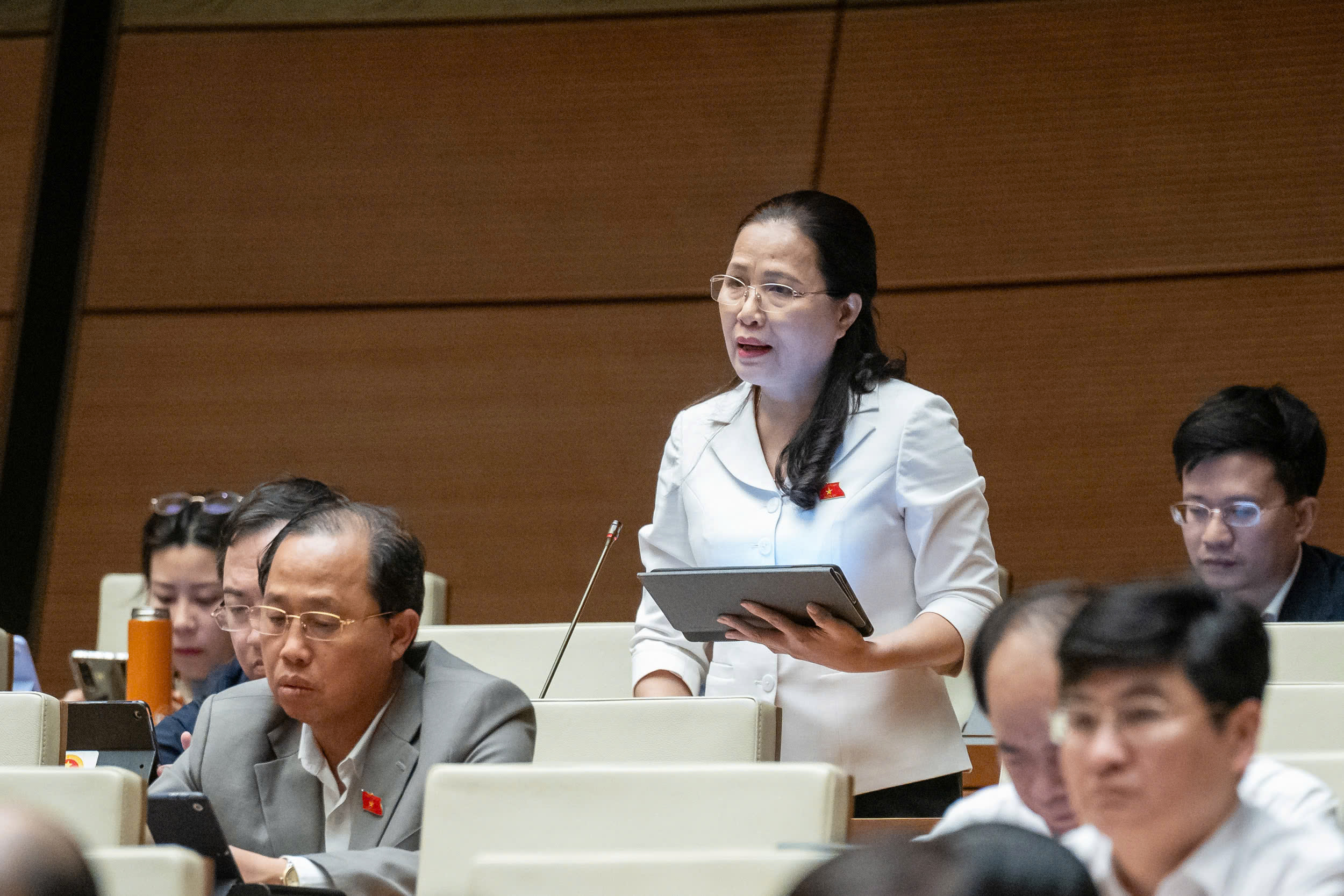
Delegate Do Thi Lan (Quang Ninh delegation).
Ms. Lan said that the regulations on the period of exploitation and extension of mineral exploitation are not consistent with the Central Government's policy on administrative reform, removing obstacles, reducing time and costs for businesses and are not consistent with the provisions of the investment law.
According to regulations, the preparation time for basic construction of a project takes 8-10 years. Meanwhile, the Investment Law stipulates that for projects in industrial zones, it is no more than 70 years, and for projects outside this zone, it is no more than 50 years.
The delegate pointed out that in reality, many coal mining projects have been implemented for over 40 years, many projects for 43-45 years including licensing and extension time.
“Many businesses have spent a lot of time preparing documents to request an extension of coal mining. Each extension is only for 2-5 years, and they have to prepare to apply for an extension license at the same time,” said the delegate.
Ms. Lan said that extending the mining period many times is very inappropriate. The current regulations on the time limit for granting mineral exploitation license extensions in the draft Law have received many opinions from National Assembly deputies who have pointed out unreasonable points.
Delegates proposed to study regulations on the extension period of mineral exploitation licenses based on mineral reserves and geological conditions of the minerals. Accordingly, the project adjusts regulations on the license period not exceeding 50 years, and the extension period not exceeding 15 years.
No regulations on pricing mineral exploitation rights
Previously, presenting a report on explanation, acceptance and revision of the draft law, Chairman of the Committee for Science, Technology and Environment Le Quang Huy said that the draft law after acceptance and revision consists of 12 chapters and 116 articles.
There are still some contents with different opinions that need to be discussed, including the content on the management of Group IV minerals (including clay, hill soil; soil mixed with rocks, sand, pebbles, gravel or soil, clay with other names that are only suitable for the purpose of filling materials; mine waste soil and rock).
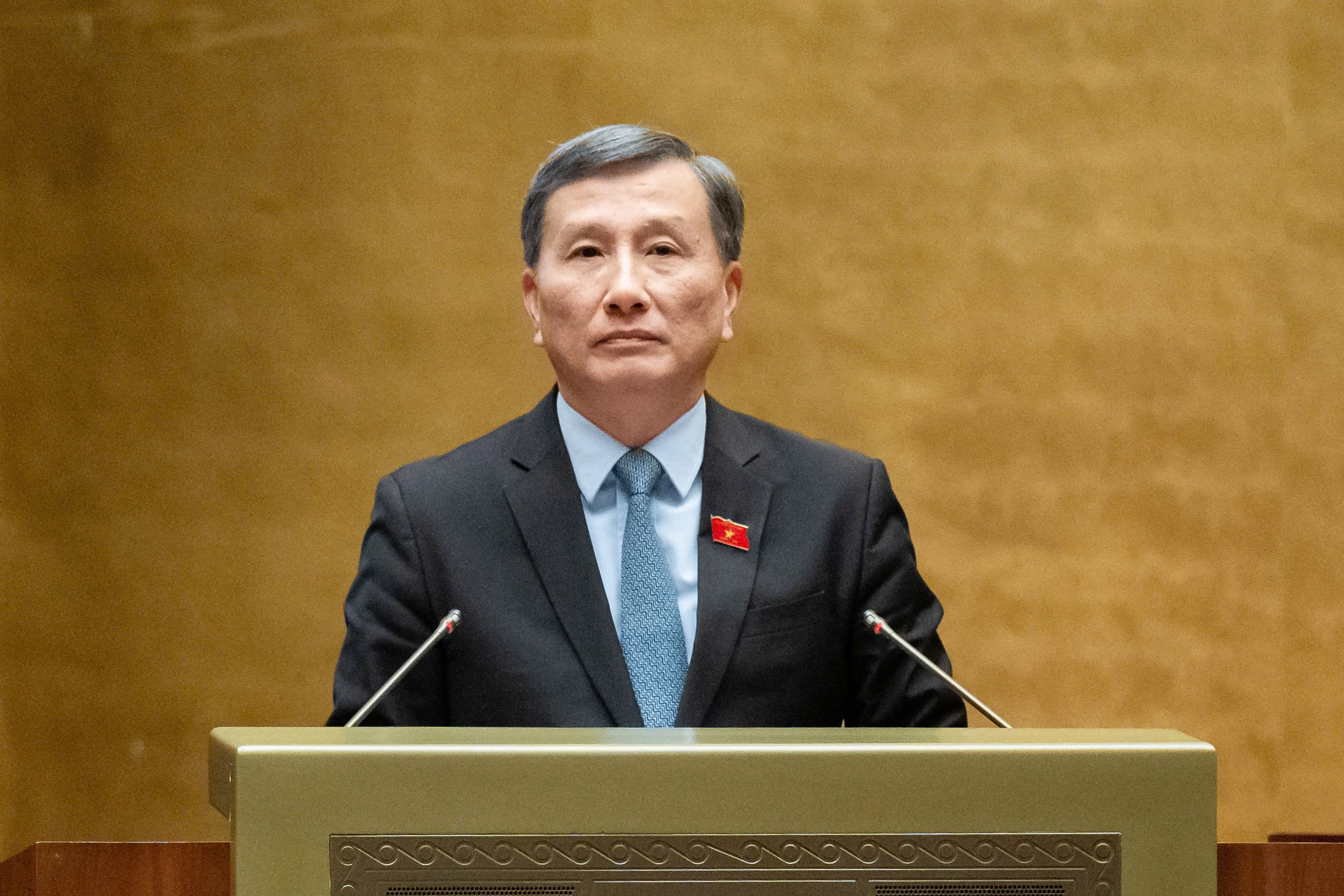
Chairman of the Committee on Science, Technology and Environment Le Quang Huy.
Among them, there are opinions suggesting that we should consider not to remove regulations on licensing procedures for exploration and exploitation of minerals used as filling materials, to avoid creating legal gaps leading to violations, affecting the effectiveness and efficiency of state management in the mineral sector.
There are also suggestions that it is necessary to consider granting mining licenses for Group IV minerals instead of implementing them in the form of registration of operations.
Regarding this issue, the Chairman of the Committee on Science, Technology and Environment said that accepting the opinions of National Assembly deputies, the Standing Committee of the National Assembly has directed that "for Group IV minerals, it is necessary to study to have specific regulations related to planning, exploration and exploitation to avoid taking advantage of policies".
“The National Assembly Standing Committee and the Government have agreed to continue to regulate licensing but simplify the processes and procedures for Group IV minerals to unlock resources and promote socio-economic development,” said Mr. Huy.
In addition, the draft Law has revised the principles of exploiting Group IV minerals in Clause 2, Article 75. To solve the bottleneck in planning and thoroughly remove procedural obstacles, the draft Law stipulates that Group IV minerals are not included in provincial planning.
Regarding the proposal to add content on mineral exploitation rights valuation, Mr. Huy said that the results of mineral exploitation rights valuation are one of the information to determine the starting price for the auction of mineral exploitation rights.
However, it is not feasible at this time to stipulate this content in the draft Law or assign the Government to specify details.
“Therefore, for now, the National Assembly Standing Committee proposes not to regulate the pricing of mineral exploitation rights; requests the Government to thoroughly study and propose solutions in the coming time,” said the Chairman of the Committee on Science, Technology and Environment.


![[Photo] Party and State leaders attend the special art program "You are Ho Chi Minh"](https://vphoto.vietnam.vn/thumb/1200x675/vietnam/resource/IMAGE/2025/5/18/6895913f94fd4c51aa4564ab14c3f250)



![[Photo] Ready for the top competitions of Vietnamese table tennis](https://vphoto.vietnam.vn/thumb/1200x675/vietnam/resource/IMAGE/2025/5/18/9c547c497c5a4ade8f98c8e7d44f5a41)
![[Photo] Many young people patiently lined up under the hot sun to receive a special supplement from Nhan Dan Newspaper.](https://vphoto.vietnam.vn/thumb/1200x675/vietnam/resource/IMAGE/2025/5/18/6f19d322f9364f0ebb6fbfe9377842d3)


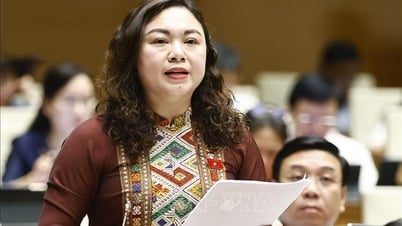

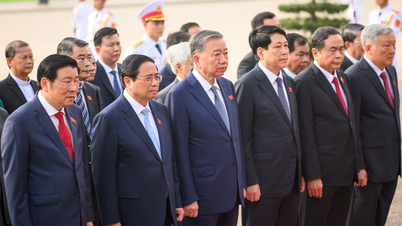






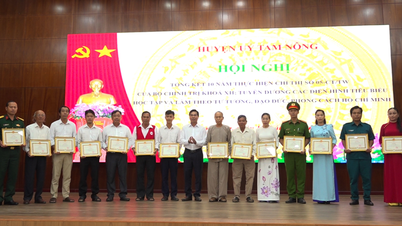

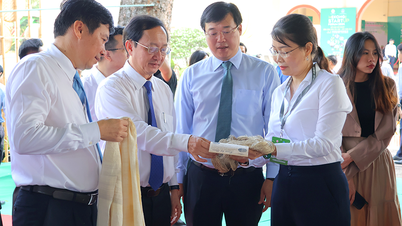
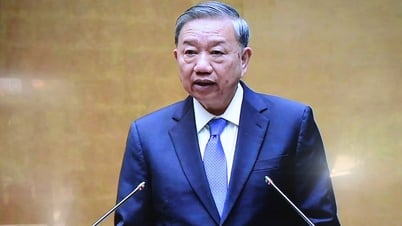
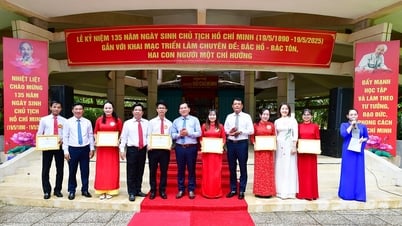








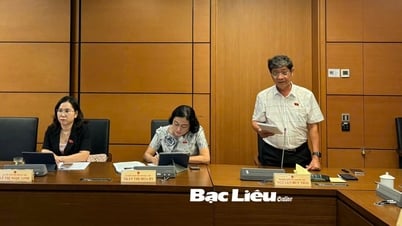
![[Infographic] Numbers about the 2025 High School Graduation Exam in Dong Thap Province](https://vphoto.vietnam.vn/thumb/402x226/vietnam/resource/IMAGE/2025/5/17/c6e481df97c94ff28d740cc2f26ebbdc)
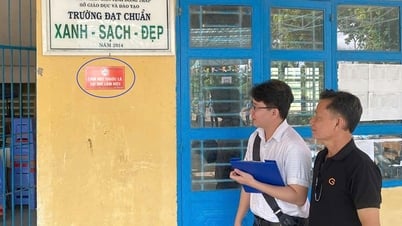














































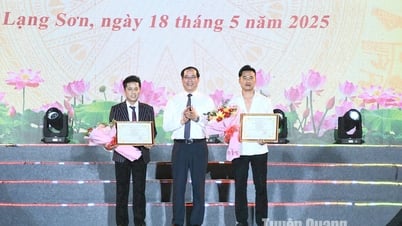

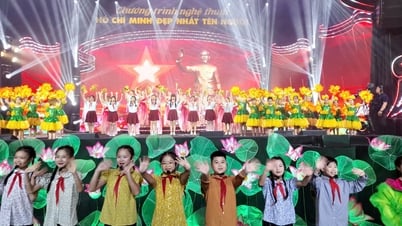

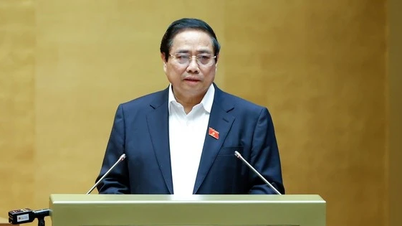

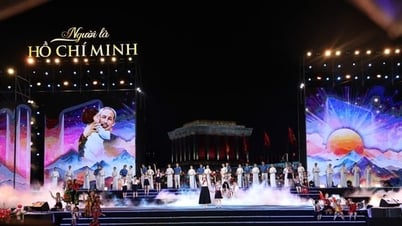



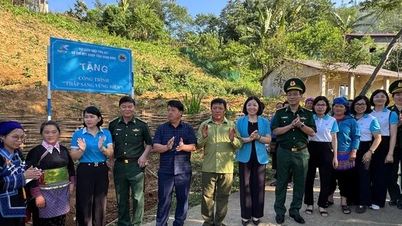








Comment (0)